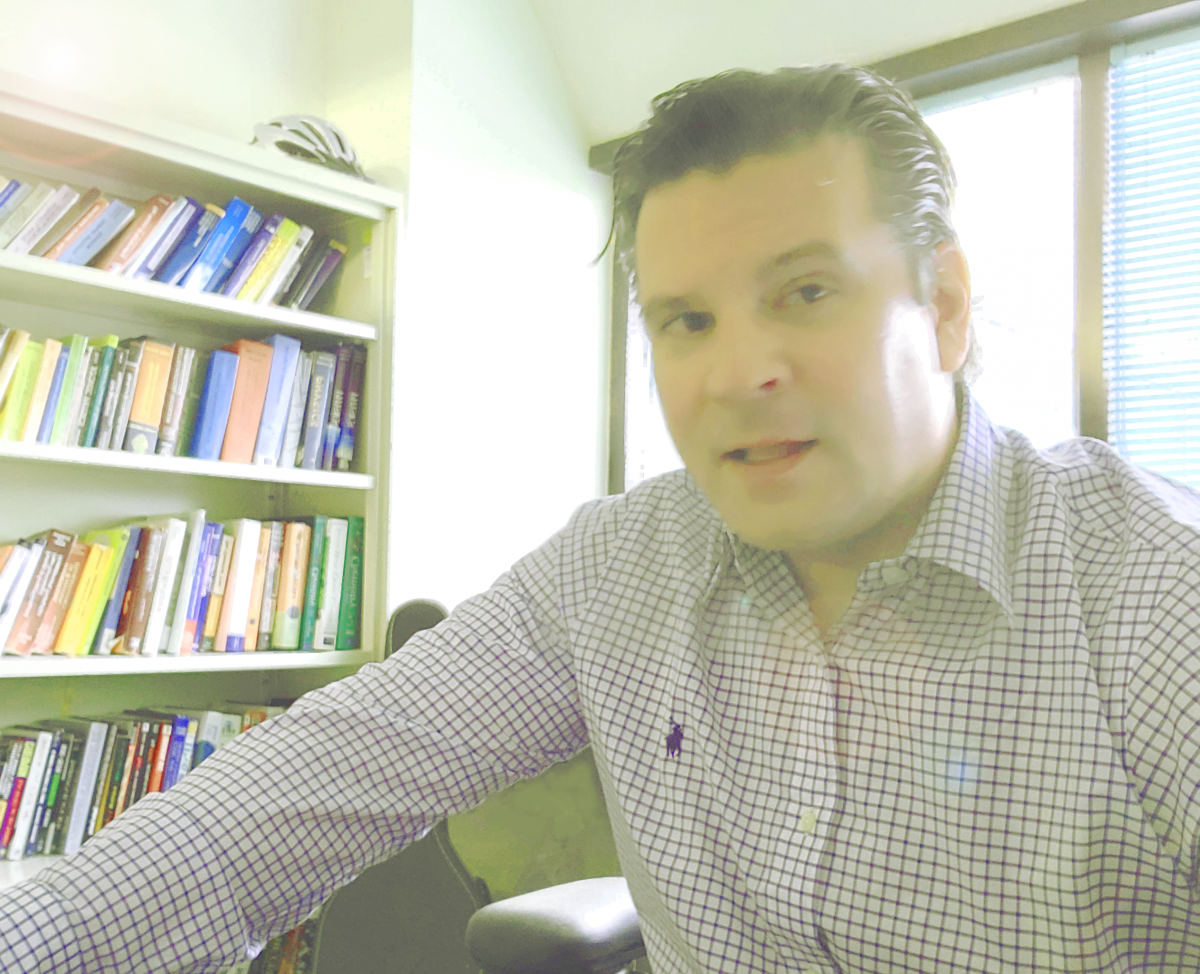Dr. Jon Belof
Seminar Information
IN PERSON ONLY

The interaction of shockwaves at material interfaces of differing impedance results in an inherently unstable dynamical trajectory, with non-linear growth of perturbations and subsequent jetting occurring in chaotic fashion owing to the well-known Richtmyer-Meshkov instability (RMI). There are very few known solutions to preventing the formation of RMI and even partial progress toward its stabilization would enable many important applications, such as more effective mining and energy exploration, aerospace engineering and inertial confinement fusion. Beginning with Onsager (“Statistical Hydrodynamics”, 1949), and further developed through more modern treatments, the field dynamics that generate and sustain this instability have been mathematically described in an equivalent form whereby a symplectic, Hamiltonian system of N point vortices can interact and evolve through equation of motion. In this alternate picture, the time propagation of the field (and the baroclinic forces that generate instability) is projected into a reduced order form with vortex evolution as the key quantity of interest, but at the expense of non-linear complexity. Through application of new machine learning workflows, coupled to simulated hydrodynamics, we show that there exist solutions to the problem of RMI in which the vortices at the interface can be destroyed, a concept that we denote as the Annihilation of Vortical Flow (AVF). The engineered solutions, found via ML hydrodynamic design optimization, are generated via special drive conditions that have been manufactured with modern additive techniques. While the supercomputing resources necessary to apply hydrodynamic design optimization are massive, it has been found that the solution space for stabilization of RMI is surprisingly large. Techniques for the generation of tailored shockwaves in the laboratory, via both controlled impact and explosive drives, will also be presented.
Jon Belof is Group Leader of Material Dynamics and Kinetics in the Materials Science Division, Physical and Life Sciences Directorate, where he leads a team of >30 staff and postdocs in areas of simulation, experiment and prototyping. He is PI for the WCI and GS-sponsored LDRD Strategic Initiative, Project DarkStar, that is discovering new mechanisms for the enhanced control over dynamic material deformation, leveraging advanced machine learning methods coupled to next-generation hydrocodes and informed by complex hydrodynamic experiments. Since 2018, Jon is also a group leader in the Energetic Materials Center, responsible for strategic direction, staffing and academic engagement. From 2018-2021, Belof led the Equation of State and Materials Theory program within the Advanced Simulation and Computing area for WPD and is project lead for Phase Transition Kinetics within the Physics and Engineering Models program. His areas of scientific interest in PLS include material self-assembly, matter at extreme conditions, shock wave compression of condensed matter, non-equilibrium physics and complex hydrodynamics. He has served as PI for multiple projects in dynamic material response and high energy density science, the Large-Scale Computing Initiative, Exascale Grand Challenge (ATCC), projects in Global Security and LDRD. From 1995-2005, Jon’s professional role was to provide technical leadership in the corporate/startup world, including as 9th employee of the national security company NETSEC, Inc. Jon earned his B.A. in Chemistry (2005) and Ph.D. (2009) in Physical Chemistry from the University of South Florida and then was a postdoctoral researcher working with Draper Laboratory on nanomaterials for the detection of chemical weapons. In 2010, Jon went on to study high energy density physics as a postdoc at LLNL, going on to design many experiments that would be fielded at JASPER, NIF, Omega/LLE and pulsed power facilities. Belof has been the recipient of the Presidential Early Career Award (2017), Kavli Fellow of the U.S. National Academy of Sciences (2019), NNSA Defense Programs Award of Excellence (2019) and Distinguished Alumni Award from USF (2020).
